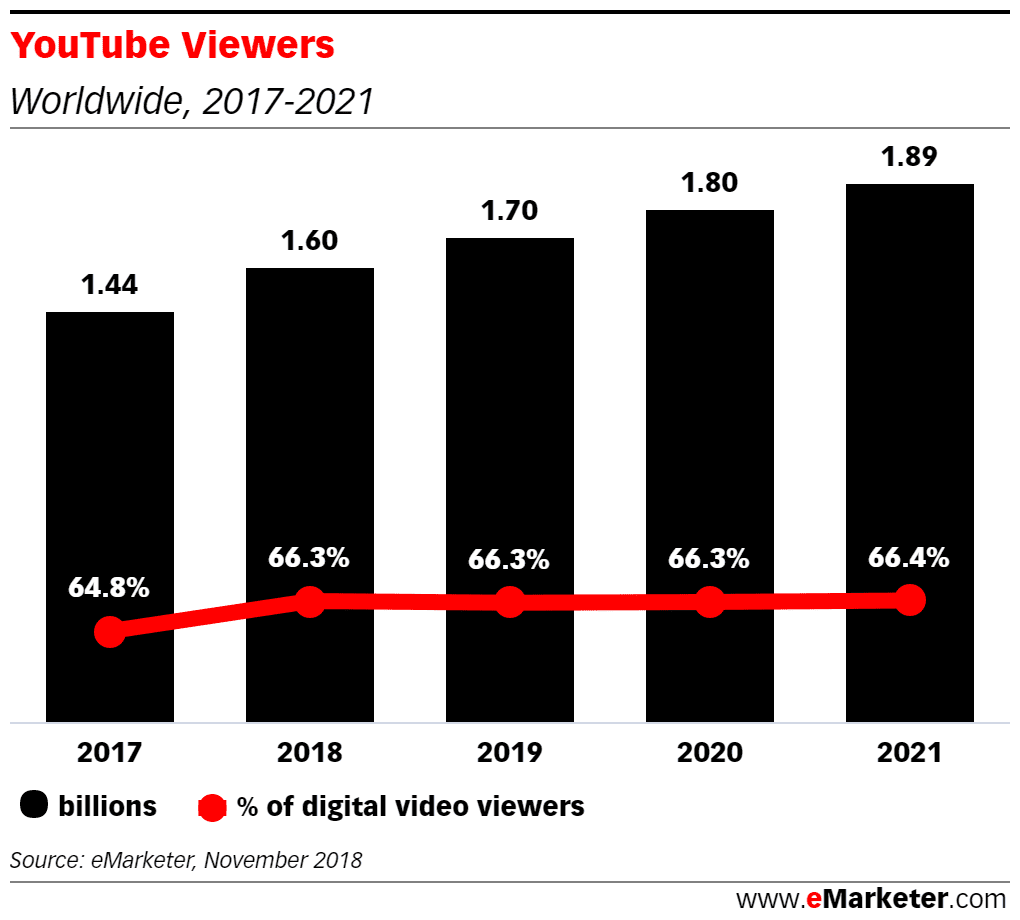The short-form video app TikTok has become immensely popularamong a new generation of video creators and their fans, leading some to believe that it could eventually dethrone YouTube as the preeminent platform for up-and-coming video creators.
That was the theme surrounding VidCon, the annual digital video convention held this month in Anaheim, California. At this year’s event, YouTube received swaths of criticism from those who believe its relevance is waning in the creator community, while TikTok—and the creators who have come to prominence on the platform—seems poised to take over.
“YouTube has been a home for video creators for more than a decade,” said Debra Aho Williamson, principal analyst at eMarketer. “But it’s starting to see real competition from TikTok as well as other social platforms like Facebook, Snapchat and Instagram. All of them want a piece of the massive audience for creator content that YouTube has built.”
TikTok, however, is a very different medium than YouTube, and the creators emerging on the short-form video app are creating different types of content as a result. While YouTube creators tend to focus on long-form content with higher production value, TikTok lends itself to shorter, less-polished video, which makes creating content on the platform much easier for entry-level creators.
“YouTube serves a certain platform purpose with longer-form video, predominantly,” said Christoph Kastenholz, founder and CEO of Pulse Advertising. “TikTok serves a completely different purpose. … It’s very user-centric. That makes it very easy for the user to create content.”
While TikTok has been praised for its ease of use, YouTube has received criticism for becoming unfriendly toward content creators. Some have spoken out about YouTube’s algorithm, which reportedly favors long-form videos and channels that are updated frequently. This puts pressure on creators to produce a steady stream of highly polished content and makes it harder for newcomers to create content that will satisfy the algorithm.
Similar complaints have been raised about YouTube’s cost per mille (CPM) policy. While YouTube takes 45% of the ad revenues earned on all creator videos, some established creators can earn advertising revenues at a much higher rate through the elusive Google Preferred program, which entices advertisers to place ads on high-performing videos.
“YouTubers in the Google Preferred program have a significantly higher CPM than general creators on YouTube,” said Krishna Subramanian, co-founder of influencer marketing platform Captiv8. “It’s $10 CPM and above if you’re in the Preferred program, and $0.30 CPM if you’re not. It’s a little bit of a black box in terms of how you really get into that preferred program.”
But despite the hype over TikTok, the platform has a long way to go before catching up with YouTube’s user base. China’s Bytedance, which owns TikTok, said the platform had 500 million monthly active users(MAUs) in June 2018. We estimate that YouTube had 1.6 billion MAUs worldwide last year, amounting to 66.3% of all digital video viewers.

While not all YouTube users tune in to creator content, influencer marketing on the platform racks up trillions of views each year. Video marketing firm Tublar Insights estimated that 5.1 million YouTube influencers uploaded 902 million videos to YouTube in 2018, garnering a total of 18.8 trillion views.
TikTok, on the other hand, doesn’t have a formal ad business yet, and its creators can’t monetize their videos with ads. The platform has begun quietly testing ad units, and select brands, like Chipotle, have partnered with TikTok influencers on campaigns. But, according to a February 2019 survey conducted by Sprout Social, just 4% of US social media marketers were incorporating TikTok into their marketing strategy, vs. 49% who used YouTube.
“Even though TikTok has…


